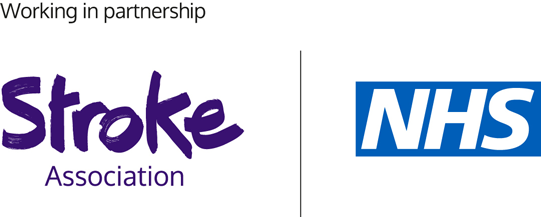
Stroke PREMs 2022/23 is a ground-breaking project and was made possible by the Stroke Association working in partnership with NHS England. It has been a really exciting project and is the first time we have worked together in this way.
Stroke survivors helped us to develop and design a survey asking about patient experiences of stroke care in hospital and the community. Other areas of the NHS already have these surveys, including cancer care and inpatients. But this is the first time we have run one for stroke.
You can see a copy of the survey that was sent, along with information about who received it and how it was developed here.
At the Stroke Association, we are passionate about hearing first hand from stroke survivors so that we can understand what matters to them during their personal stroke journey. This survey was a great opportunity for stroke survivors to have their say tell us what works well and what can be done better, so that stroke services can be improved.
Over 6,600 surveys were returned, which is a fabulous response rate for a first-time survey.
The success of this first survey was not solely down to the main project team - everyone working across stroke care has played their part in supporting this opportunity to hear directly from stroke survivors about their care.
We would like to thank everyone who was involved and got behind the project, and we would also like to say a big thank you to everyone who took the time to complete their survey and tell us about their experiences.
Keep reading to find out about the results.
Stroke PREMs 2022/23 national results
You can view the Stroke PREMs 2022/23 National Report.
We have also produced an aphasia friendly version of the key findings from the report, available to view here: PREMs key messages aphasia friendly version.
Read reflections from the Stroke Association CEO and the National Clinical Director for Stroke, NHS England here.
What do the results tell us?
Overall, the stroke survivors who returned their surveys (respondents) told us that they are generally satisfied with the care they received along the whole stroke care pathway. This is an incredible achievement considering the challenges facing the NHS in 2022/23.
A high number of respondents told us that they were cared for with dignity and respect. This is a testament to the hard work of the highly skilled specialists delivering care both in the hospital and community.
Whilst a high number of respondents felt that they were helped to understand their stroke and what would happen next, some respondents stated that they would have liked more involvement in planning their therapies and making decisions about their care. More work can be done to support stroke survivors in feeling involved in their personal stroke journey.
Some respondents indicated they would have liked support with their emotions, mood and wellbeing, but were not offered it. We know that helping with the invisible effects of stroke are important, and that recovery for the stroke survivor is often much more than physical therapies. We need to make sure that stroke survivors have access to psychological care across the whole stroke care pathway.
The results also indicate that some respondents would have liked more 'life after stroke' support. This could be things such as peer support and returning to hobbies and activities. This shows us we need to raise awareness of Stroke Association services such as the stroke helpline, My Stroke Guide and stroke groups. You can find out about the services we offer here.
Some respondents told us that they would have liked support for returning to work but were not offered it. This shows that work is particularly important to stroke survivors, and that more can be done to help stroke survivors return to their jobs following their stroke.
The survey was sent to everyone who had a stroke and was admitted to hospital in England between 16 May 2022 and 16 September 2022. Like other national surveys, it took a 'snapshot' to identify themes. You can view a copy of it here.
The Stroke Association produced the survey in partnership with NHS England. This first survey focused only on stroke care in England. We hope that Wales, Scotland and Northern Ireland will look at doing something similar in the future.
However, the survey wasn't developed in isolation. Stroke survivors helped to design the survey. We also held discussion groups to find out what really matters to you.
The Stroke Association and NHS England asked the NHS Trust that treated the survey recipients to share their personal details and some information about their stroke care. These details were shared with Quality Health, an independent company carrying out the survey on behalf of NHS England and the Stroke Association.
It is not practicable to seek patient consent before sending out surveys. Therefore, ahead of contacting NHS trusts to share patient data for the purposes of the survey, approval under Section 251 of the NHS Act 2006 was given to send the survey without consent. Patients were given the opportunity to opt-out via fair processing notices displayed by the NHS trusts providing stroke care and those stroke survivors who were receiving support from the Stroke Association.
The security of patient information is taken very seriously. Various precautions are in place to ensure that any information is protected at all times from loss, theft or misuse.
Under data protection legislation, the Stroke Association and NHS England were joint controllers responsible for the processing of your personal data to conduct the survey. They contracted Quality Health to manage the survey on their behalf and this organisation acted as the data processor on their behalf. All personal information was handled securely, and the results published will not identify any patient.
The Stroke Association and NHS England will protect patient and user information in line with the requirements of the Data Protection Act 2018. . A copy of the Joint Data Controller Agreement can be requested by contacting the NHS England Customer Contact Centre via the details below. Our privacy notices are also linked below, which describe how we use personal data and explain how to contact us and invoke rights as a data subject.
Patients that do not want the NHS to share your information in the future, can contact the NHS Trust that provided their stroke care and ask to opt out of future surveys. Trust contact information will be available on the website of the hospital where the stroke was treated.
To find your Trust, please visit the NHS A-Z guide of Authorities and Trusts.
If you are a health professional, you can sign up to receive updates about the PREMS survey.

